Home > Oasis of Peace > Projects & Outreach > The School for Peace > Creating Change Advocates: Palestinian & Israeli Professionals in (...)
Creating Change Advocates: Palestinian & Israeli Professionals in Dialogue and Action
Tuesday 5 August 2008

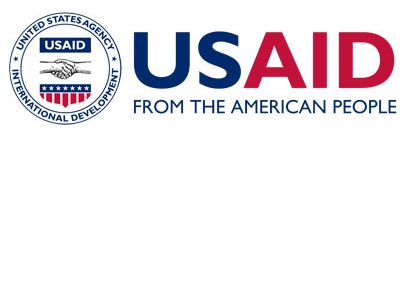
Advocates for Change: Israelis and Palestinians in Dialogue and Action, made possible with the generous support of USAID and the American people in cooperation with the School for Peace at NSWAS and Hewar.
"It was magic," reports Dr. Nava Sonnenschein of the School for Peace (SFP) about the results of the lawyers’ meetings from the ’’Creating Change Advocates: Palestinian and Israeli Professionals in Dialogue and Action" program.
Funded by USAID, and run cooperatively by the School for Peace and the Hewar Center for Peace and Development, the programme’s second phase brought together 20 Palestinian and 20 Israeli lawyers together in June. The objective: to train Palestinian and Israeli lawyers how to work from a human rights perspective that acknowledges the needs of both peoples. Through this newly acquired lens, the hope is that participants will help create opportunities for easing the conflict between the two peoples, form a critical mass dedicated to institutional change and reconciliation, and actively promote peace.
Origins and Development
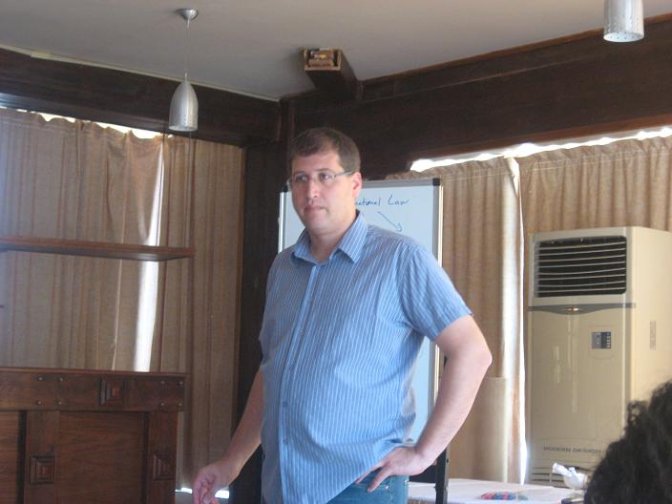
The idea originated when graduates of the SFP facilitator training course were being interviewed for research purposes. A prominent human rights lawyer, Michael Sfard, was one of the interviewees. At the young age of 22, he attended a SFP course and became a qualified facilitator. He asserts that the course he took more than 12 years ago had been instrumental in his ability to deal with the legal system and provided him with valuable tools to deal with opponents in the courtroom. "The School for Peace course constantly comes to mind in my work...", he comments. "... It made me realize that sometimes the feeling that you are right can blind you. You are so sure that you are right that you cannot step into your opponent’s shoes. One day," he mentions, "I suddenly understood that different people understand the same reality differently and we don’t always have to determine who is right..."
A comprehensive recruitment program was launched on both sides with advertisements going out to a wide-range of media (the Israeli Bar Association e-Newsletter, Shatil, associations that deal with human rights law, etc.). On the Israeli side, 20 lawyers were picked, out of which 15 were Jewish-Israelis and 5 were Palestinian-Israeli citizens. On the Palestinian side, led by the well-known Palestinian lawyer Mohammad Abu Sneina, from Hewar, 20 young-Palestinian lawyers from diverse geographical areas were selected. The goal was to recruit young professionals. The group eventually chosen range from 24 to 40 years old, with an average age of 28. Younger lawyers were targeted because it is easier to work with professionals who have not yet been enticed by the more popular, higher-income sectors of law.
Acclimation with "The Other"
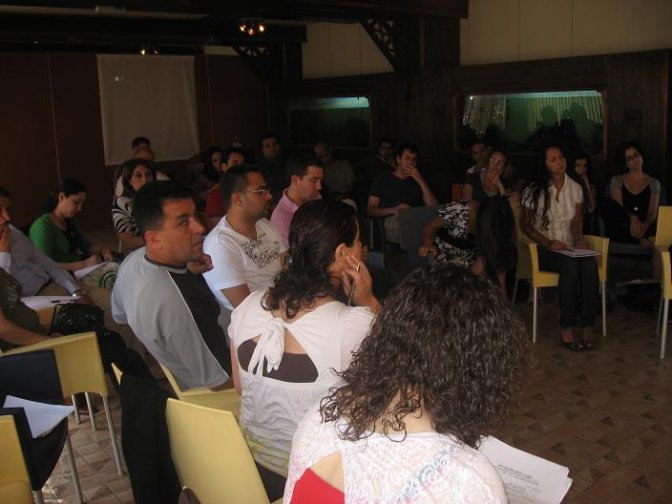
The program was divided into three components, each incorporating uni-national and bi-national meetings. The first component, a uninational meeting, commenced on January 11th. The Palestinian group, with 20 participants, met in Ramallah. The Israeli group, with the same number of participants, met in WAS-NS. These meetings were an opportunity for the group members to grow acquainted with each other, to set out the project’s objectives, and to prepare participants for the intensive bi-national workshop.
The first bi-national meeting was hosted in Aqaba, Jordan, from January 23rd to January 27th. This was the first time for many from the Palestinian side to meet with their Israeli counterparts as colleagues and not as ’soldiers,’ Nava commented.
The first day provided a re-cap from the uni-lateral meetings, setting expectations and getting-acquainted session. The following days were devoted to dialogue between the two sides. The Palestinian group was strong and articulate. The lawyers brought the reality of occupation to the table and placed a mirror of that reality before the Israeli group. They explained the atrocious effects of the occupation upon the lives of ordinary people, described the situation in Gaza, the refugees, the checkpoints, and other hardships. The Israeli group, on the other hand, attempted to wrest from the Palestinians an acknowledgment of their moral right to exist in Israel. The third day was devoted to dialogue around key issues such as: the definition of Israel as a Jewish state, land confiscation, discrimination against Palestinian citizens of Israel, history of the 1948 war, racism, the asymmetry in power and other such internal issues. In the fourth day, the participants were engaged in a simulation of negotiations about the main issues that have to be resolved between both sides: Jerusalem, refugees, final boarders, security, and natural resources. All teams reached impressive agreements. The last day was devoted to reflections.
During the second component (commencing on February 22nd), uni-national meetings were held once again. The groups attended lectures at WAS-NS where Dr. Nava Sonnenschein presented on ’Identity and Conflict’; Dr. Rabah Halabi on post colonial theories (March 14th) and Dr. Adel Manna examined the history of the Israeli-Palestinian conflict from a critical perspective (April 11th).
During the second bi-national meeting (June 26th-29th), the "magic" began to take shape. The group was given lectures by Michael Sfard on general theories of international law, military occupation, legal structure of separation, etc.; both in the wider global context and not specific to the Palestinian/Israeli conflict. Advocate Mussa Sayad spoke about the Palestinian legal system and the influence young lawyers have. The day was devoted to dialogue around key issues such as: the definition of Israel as a Jewish state, land confiscation, discrimination against Palestinian citizens of Israel, the history of the 1948 war, racism, the asymmetry in power and other such internal issues. These sessions helped give the participants ideas about where activism can be effective.
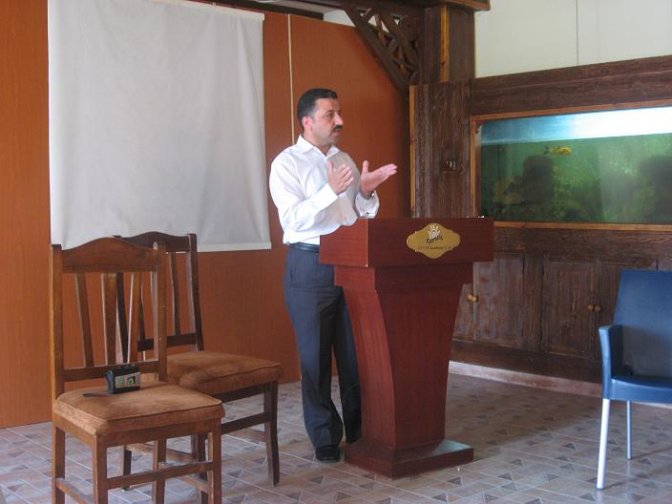
Nava adds that the role of the Palestinian citizens of Israel was very interesting as they were involved in constant "translation", by which she does not mean the literal definition of the word. “By developing a translation,” Nava explains, “we were trying to get one group to understand the ‘other’s’ intention.” There were times when an Israeli would innocently make a comment and offend a Palestinian, and vice versa. There were many delicate issues, and placing the conflict within each others’ context was important to avoid misconceptions.
In the uni-national sessions both groups prepared their national professional dilemmas and presented it to the whole group in a planning session. The Palestinian side presented problems such as having to defend a collaborator, or defending a one-single-small farmer while knowing a compromise is helping the individual but not the Palestinian cause as a whole, and other issues that go against the national Palestinian cause. Israelis who were against the Wall (the separation barrier) ran the risk of being ostracized or black-listed by their community for representing Palestinian causes. The dilemma deepened due to the nature of bringing cases to the Israeli courts. The Israeli lawyers unwillingly give the Wall legitimacy by acknowledging its presence and the issues surrounding it.
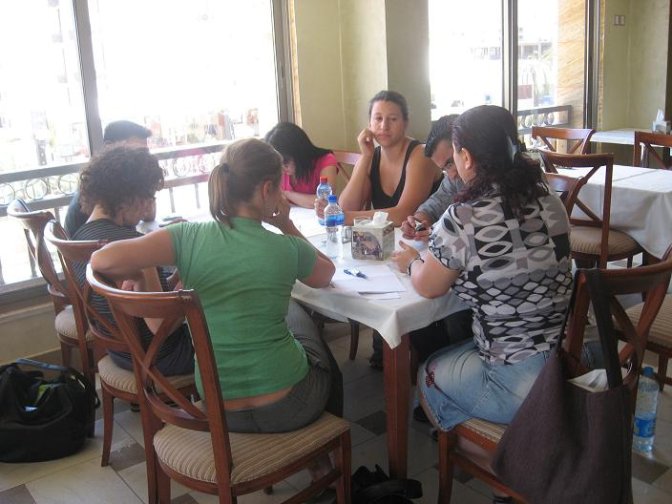
The final session of the day was used to decide on projects. The participants sat in small mixed-groups and brainstormed ideas. What was interesting was that both groups chose women as chairs. What is even more interesting is that one group chose a Mizrahi (Eastern Jewish) lawyer, and the second group chose a 1948 Palestinian Woman (Palestinian with Israeli citizenship.) The groups were then divided into 3 bi-national teams, each with 2 chairpersons - 1 Palestinian and 1 Israeli. The first team chose to deal with the problematic topic in military courts. The second team chose International Human Rights Law and using the international tribunals to fight violations of human rights in the occupied territories. The third team decided on creating a joint forum of Palestinian and Israeli lawyers that will fight together against human rights abuses. A unique and powerful thing was noted in these sessions as the shift and transformation in ideas and opinions were clear and both sides were very eager to work together. Both sides have a tremendous amount of obstacles to overcome, but both chose to set aside their cynicism and skepticism, and made a firm decision to be optimistic about the future partnership. Nava added that if this initial enthusiasm and dedication to the program is sustained, big changes in society are inevitable.
Nava comments, "I saw with my own eyes the magical transformation of a whole group of young lawyers. They passed from the early stage of absorbing new knowledge, moved on to struggle with inner change, and eventually they became a group that is ready to take responsibility and act. This was an exciting process."
Above and Beyond/Future Endeavors
Due to the intense nature of the program, with many lectures and seminars scheduled, the groups had insufficient time for dialogue. When it was not possible to complete a discussion during the sessions, the dialogue will would spill over into the participants’ "free" time, such as coffee and lunch breaks. They would converse during and after dinner, and on into the the early hours of the morning. Their enthusiasm to speak to each other was evident; the groups even decided to go on a 5-hour boat trip at the Red Sea together, rather than separate.
The third component of this program starts July 18th and will be followed by monthly meetings. It will be a series of eight uni-national and bi-national lectures and seminars given by prominent lawyers and human rights activists, including: Advocate Hassan Jabarin, the Director of Adalah; Dr. Michael Kariani, resident of WAS-NS and professor at the Hebrew University; Dr. Dafna Golan, Dr. Jose Brunner; Professor Orna Ben Naftali in WAS/NS; Attorney Mussa Dwake; Attorney Elia Theodor; Attorney Rafif Mujadeh and Dr. Rafq Abu Ayash in Ramallah. Two of these meetings will be field trips to Ramallah, where Israeli lawyers (accompanied by their Palestinian counterparts) will be able to see the of occupation with their own eyes. The lawyers are very eager to sit with each other and have asked for more joint meetings, which gives hope. What we have here is something unique. These are the beginnings of a grassroots organization whose intention is a positive peace initiative that fights against racism and the mechanism of oppression, and one that struggles against the apathy and acquiescence of suffering. Stay tuned for updates.
